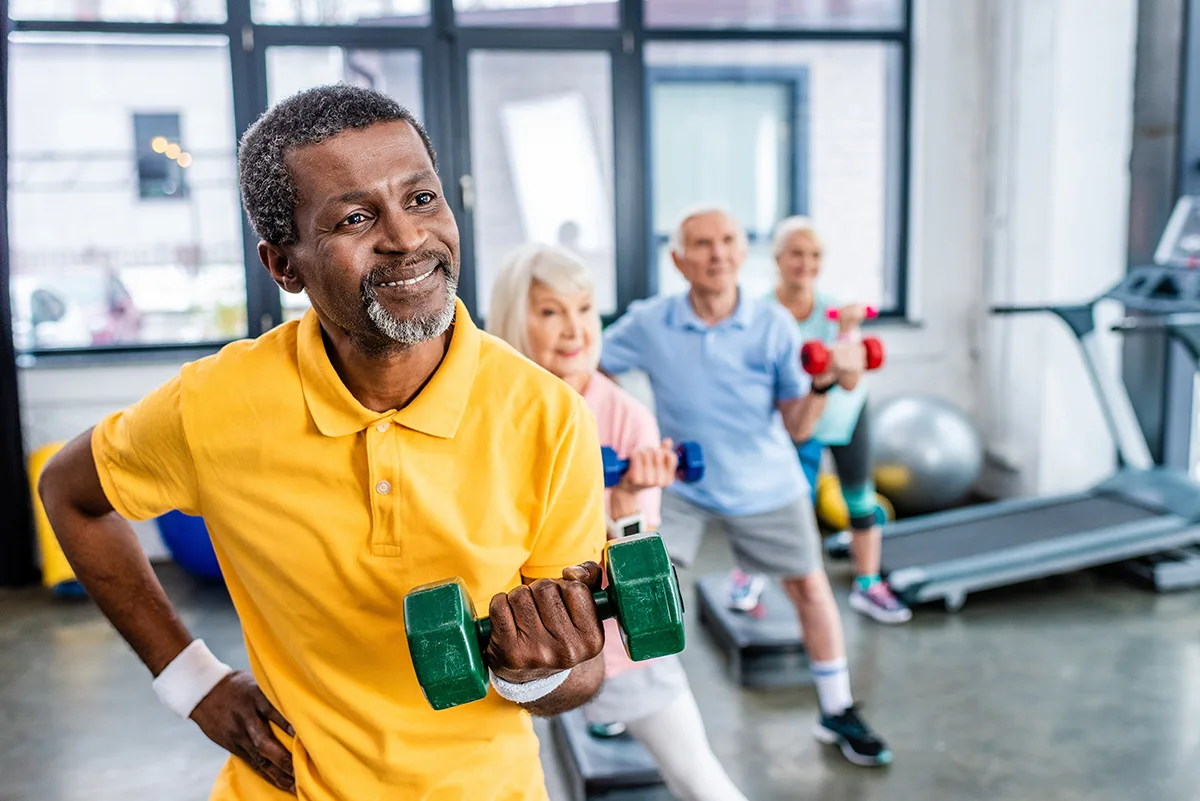We use cookies to help provide you with the best possible online experience.
By using this site, you agree that we may store and access cookies on your device. Cookie policy.
Cookie settings.
Functional Cookies
Functional Cookies are enabled by default at all times so that we can save your preferences for cookie settings and ensure site works and delivers best experience.
3rd Party Cookies
This website uses Google Analytics to collect anonymous information such as the number of visitors to the site, and the most popular pages.
Keeping this cookie enabled helps us to improve our website.
On the Ridge (Issue 38)
Summer/Autumn 2024

In this issue
- RSPG News - a message from our new Chair person
- Living a longer and a healthier life
- Why can’t I get an appointment at the surgery?
- Surgery matters
- What is Pharmacy First?
- Underactive thyroid - signs and treatment
- Ultra processed food - is it really a health risk?
- Raising funds for Macmillan, September 2024
- All about e coli infection
- Vaping - its use and abuse
RSPG News
Introducing Sue Bush, your new Chair of Ridgeway Surgery Patient Group.
She writes ’At the April AGM I became Chair; my background is in volunteering management and before that I was an Early Year’s tutor and a nursery nurse.
I have lived in Harrow all my life and became involved with the Patient Participation Group (PPG) after the COVID vaccination centre was set up at Tithe Farm where I helped with rotas and delivery of vaccines. If you are reading this, you already know that the Ridgeway Surgery (RW) has a Patient Participation Group (PPG) but you may not know that it is recommended that all doctors’ practices should have such a group. The main aim is to be a voice for all patients and now more than ever it is really important with changes afoot both with political and technological aspects that affect us all. Since starting this article, we have a new government so there will be change coming, which we hope will improve things for Primary Care. I am still learning my role with the PPG and for your benefit I thought I would explain how we fit into the Primary Care Network (PCN).
Resources for our health and care come from the NW London Integrated Care Board. RW is one of the 7 surgeries in HEALTH SENSE PCN. The others are Pinn Medical Centre, Enderley Rd, Simpson House, 1. Kenton Bridge Rd / 2. Kenton Park (2 different surgeries) Roxbourne and Ridgeway Surgery. Each surgery has a PPG, and the chairs of each one are now forming a group to come together for better interaction and to work together. Although each surgery PPG has its own way of working, they all have a constitution and are registered charities with a fundraising aspect. Many of you I hope will come to our Macmillan Coffee morning which this year is on Saturday 28th September at St Alban Church from 10am to 12:30pm with the Mayor joining us at 10:30am. Please support us either by bringing cakes or by buying cake. We will have a raffle as well as the usual tea and coffee.
One of the key issues is how to reach our patients so if your neighbours or local friends are patients of RW but they don’t know about us, please pass on this copy and encourage them to sign up. If they don’t do technology you can sign up for them via the website or email us their details on rspatientgroup@hotmail.com
As we know, technology can be a real barrier for some people so please help us. There are over 15,000 patients just at the RW and we only have contact details for 300-400 so we need to do better. By the time this article is in print you will have received a video explaining the RW PPG in more detail, how we work with our surgery and how you can help.
One of the key roles of the PPG is to have honest and frank communications with the practice manager and partners. We are your voice, and you can contact us. The membership form is on the RW website. If you have any questions or concerns or you would like to help us in a practical way do get in touch via the email: rspatientgroup@hotmail.com Look out for our Health education talks in conjunction the NH Community Library as well. Please spread the word that you have a way to voice your thoughts and concerns about our surgery. We would love to hear from you.’
Sue Bush, Chair Ridgeway PPG
Living a longer & healthier life
Those who know Dr Etherington would not have been surprised by the focus of her 2024 AGM talk! She began by saying that if she had a magic potion, she would wish for another 15% to 30% more years of healthy life. But in fact, there is such a magic potion – Exercise. This could be tap dancing, running after children, swimming, running, walking – it’s really movement rather than exercise, such as chair yoga, exercises that can be done at home and this will give the same sort of figures as for a healthy mediterranean diet, or not smoking. So, if everyone did this, there would be less need for appointments.
There are other important elements too:
Vaccines
These were first set up in China in 1000 AD for inoculation against Smallpox. Europe was really far behind. In 1937, the yellow fever vaccine was introduced in Africa.
Polio
People can die from polio and whilst we have a vaccine, it is not extinct in Pakistan or Afghanistan.
Measles
Vaccine in 1963. For many, this was a normal illness – but in more vulnerable people they can be much more sick and possibly lose their hearing, which is life changing. This is a horrible disease, children can be really sick. 1 in 10 get bad problems and 1 in 100 suffer neurological problems like fits. UK has had 1,000 cases in the last year, ⅓ in London (40 in Harrow and Wandsworth).
If a child of the 1990s, it is possible parents may have opted out of the vaccine for their children and people of this age are encouraged to be vaccinated. Also, if over 70, they may not have had the vaccine and need to have this now.
Covid
1.5% mortality rate, which is a large number of people
Whooping Cough
There is a lot about this in the press currently, plus 100-day cough. Pregnant women are being offered the vaccine as babies have to wait for 3 months after birth to get the vaccine.
Shingles
If you get chickenpox as a child, this waits in the body until you are close to someone with chickenpox and it reminds your virus to open up again. The shingles vaccine was given for 70 to 79 year-olds, but is now offered for 60+ onwards. It is not offered past 79 as, at 80, it is possible to get side-effects of mild shingles.
Screening
It is important to find and prevent an illness before symptoms appear. A lot of screening is done at the practice.
Cervical screening
This disease can then be caught early.
Diabetic eye screening
We need to do this early, before blindness occurs.
Genetic screening
This is controversial so it is better to do blood tests and look at lifestyle and family history. Numbers attending screening have dropped off since Covid and the practice has just undertaken a survey to determine why some people don’t turn up. Some people say they are too busy, so the practice will offer cervical screening at weekends and weekday evenings. It is not a waste of time to talk about prevention.
In summary, these are the pillars of a longer and healthier life:
- Exercise, movement
- Diet
- Sleep
- Work – being gainfully occupied
- Involvement in the Community

Why can’t I get an appointment at the surgery?
This was the title of Dr Small’s talk at our AGM in April. She was joined by Dr Gohil and Dr Etherington and gave apologies and good wishes from Dr Lloyd, RSPG’s Life President who was in hospital at that time.
Dr Small began by pointing out that so much has changed in medicine both in terms of treatments and in how such help is offered but the commitment to looking after patients from ‘the cradle to the grave’ has not.
The Ridgeway is a reasonably large practice with approximately 15½ thousand patients. Setting the scene she gave details of percentage of patients with long term conditions such as diabetes /pre-diabetes, blood pressure issues and asthma. Taking a particular day at random as preparation for this talk, Dr Small then gave us a breakdown of activity across both surgeries for that day and the figures were as follows:
Contact (each day)
- Phone calls 344
- Patchs - online consultation
- Follow up appointments 360
- Prescriptions 140
- Blood and Pathology 300
- Letters and correspondence 150
Telephone call information
- 415 calls in
- 281 answered
- 77 abandoned
- 57 missed
Average call lasts 2minutes 39 seconds
Previously the waiting time for calls was very long and could be up to 1½ hours which was very stressful as decisions were needed about what action to take. Patchs helps to prioritise this and ensure that the patient is being put in touch with the right person. A look back shows just how much things have changed. 24 years ago there was an ‘on - call’ system and about 30 patients per day would want an appointment with a doctor. 8 years ago this had risen to 50 such requests with the doctor on duty and currently the number is more like 200!
As many patients will know the range of skills among surgery staff has greatly expanded in recent times and this means that the surgery can deal with many more appointments and concerns than in the past. As a result you may request an appointment with a doctor but be offered an alternative or sent a text instead (for example for a test result). This means that overall staff are more productive but less available in the traditional face to face way of responding to all requests.
In response to a range of questions Dr Small said that Patchs is only open for a certain amount of time until the surgery has reached capacity. Appointments are available for just up to 2 weeks ahead because they have to see which staff will be available. If specific skills are needed patients may have to come back or appointments cancelled which is time consuming. Patchs has had a positive impact on the number of phone calls as these are now down by a third. The Reception team will take telephone details of Patchs requests from patients who cannot use digital means and they then pass this information through to the Patchs system on the patient’s behalf. There are about 10 doctors at Ridgeway available for a varying number of sessions every week.
Finally Dr Small was asked if she had a magic wand what would she wish for? Resources. General practice provide 93% of clinical care in this country and only 9% of NHS resource is allocated to this service. It is not just money, but IT, rooms, lots of different things which are needed to make the wheels turn.
Surgery matters
For those of you who watched us juggle rooms and had to put up with the smell of fresh paint we apologise. The rest of you we hope will notice that the whole surgery has been repainted. This was overdue but we could not fit this in during lockdown.
We have thanks to give to the patient group who are organising the provision of a cycle rack. This is a healthier and greener travel alternative we are really pleased to be getting this.
Also thanks again to the patient group who have noticed that in our very full building where we all hot desk, the staff are missing a space to chat together. As a result the patient group have decided to work with us on creative ways to give us a bit of space where we can eat and relax together. In the winter this may indeed prove to be nicer than the health giving walk in the rain that Dr Etherington is likely to offer the team as a wellbeing option!
Vaccinations
We make no apologies for again highlighting a few items associated with vaccinations.
Measles
You will have seen the headlines about rising numbers of measles cases, particularly in London. If anyone is worried about vaccinations, do make any appointment with the member of the clinical team that you feel most comfortable with to talk through the pros and cons. Some adults in their twenties, and some grandparents carers may not have had MMR vaccines and may be at risk of catching measles.
Whooping cough
These cases are also increasing. We can protect new babies before they can themselves be vaccinated by giving pregnant women a booster vaccine ( the antibodies that the mum makes then cleverly protect the baby, until the baby is given a chance to make their own).
Shingles vaccines
These have also changed. They are now on offer to people aged 70 to 79, and catch up programme starting with people who are 65 and to people over 50 who have immune problems.
Dr Etherington

What is Pharmacy First?
Dr Gohil referred to this service at our AGM. People value the accessibility of community pharmacies, both in terms of the ease of getting to one and the speed of being seen once there.
However, Pharmacy First faces some challenges. A small proportion of the population is less open to going to a pharmacy rather than a GP. This is due to their personal preference, while in some cases, due to a lack of awareness of the services pharmacies offer.
So what does ‘Pharmacy first’ offer?
Visit the following Department of Health and Social Care Media Centre blog to learn more.
Underactive thyroid - signs and treatment
Many symptoms of an underactive thyroid (hypothyroidism) are the same as those of other conditions, so it can easily be confused for something else. Symptoms usually develop slowly and you may not realise you have a medical problem for several years.
Ultra processed food - is it really a health risk?
Ultra-processed foods typically have more than one ingredient that you never or rarely find in a kitchen. They also tend to include many additives and ingredients not typically used in home cooking, such as preservatives, emulsifiers, sweeteners, and artificial colours and flavours. But, are they really bad for our health? Our diets can have a big impact on our overall health, including our gut/digestive system.
Although regularly eating ultra-processed foods like chips, microwave meals, sweets, and chicken nuggets is not a healthy diet, processed food is not all bad. Unless you’re eating the broccoli you harvested directly from your garden, most of our daily food has undergone some form of processing and that’s not necessarily a bad thing.
Learn more on ZOE.
How to identify ultra-processed food and what to eat instead
All about E coli infection
Earlier this year there was an outbreak of E coli or Escherichia coli O157. This is sometimes called VTEC. It is a bacterial infection which can cause severe stomach pain, bloody diarrhoea and kidney failure. It is found in the gut and faeces of many animals, particularly cattle.
Vaping - its use and abuse
Vapes are designed to help people to stop smoking and, if used solely for this purpose they have proved of significant help to those who want to stop smoking. Nevertheless there are hidden dangers in this approach. Vaping involves inhaling aerosol produced by heating a liquid in electronic devices like e-cigarettes or vaporisers. The liquid usually contains nicotine, flavourings and other additives and inhaling this vapour mimics smoking without the tobacco related poison effects.